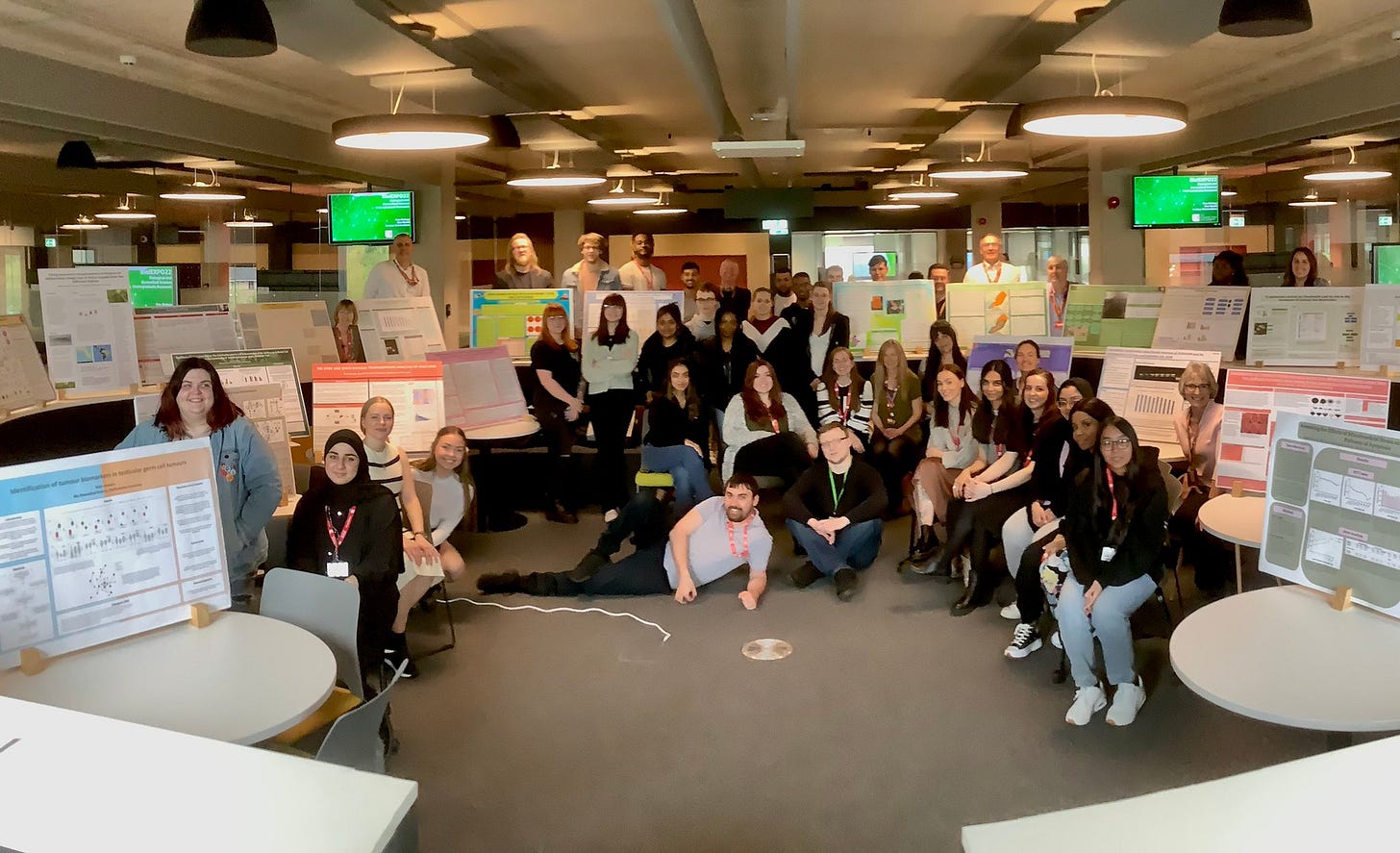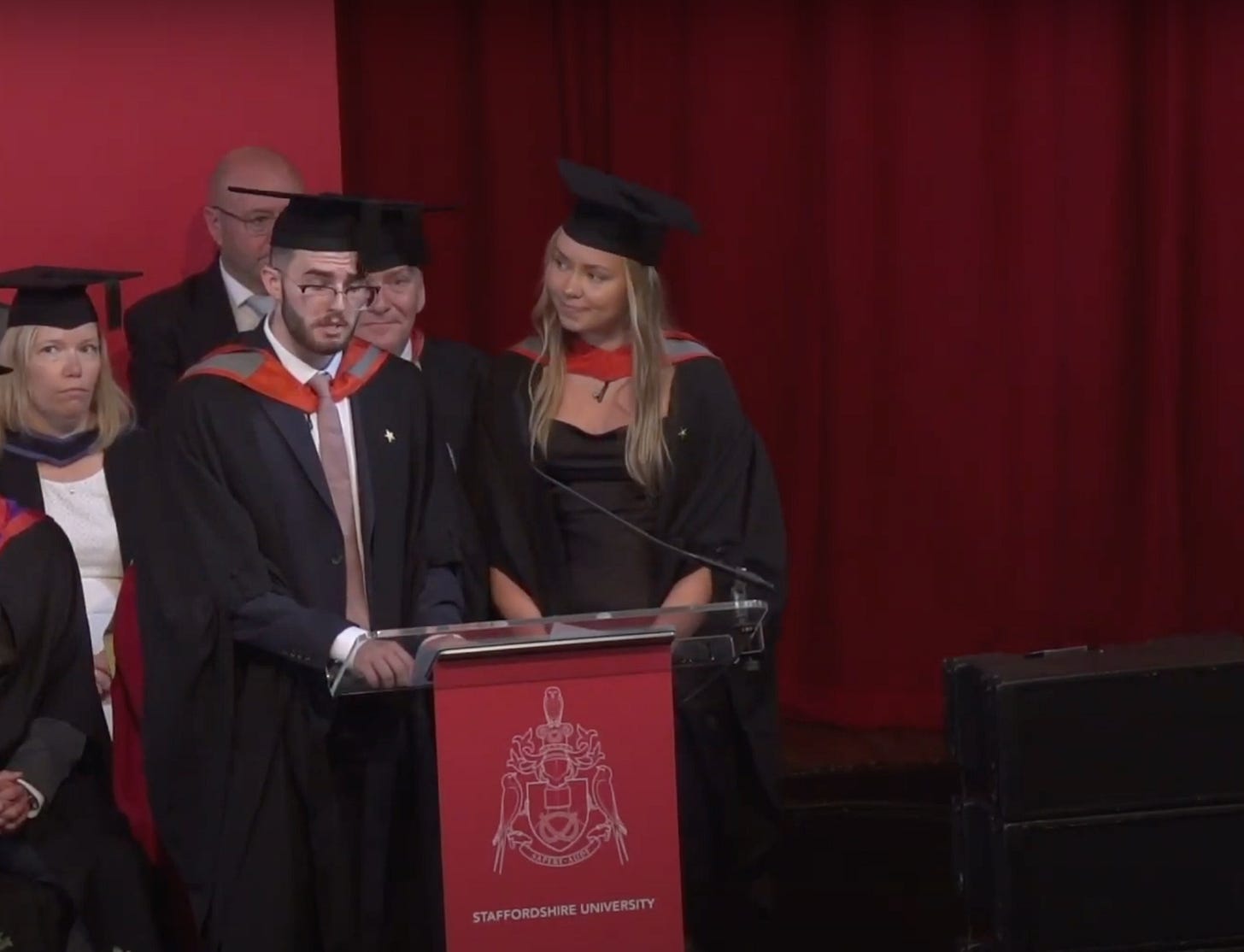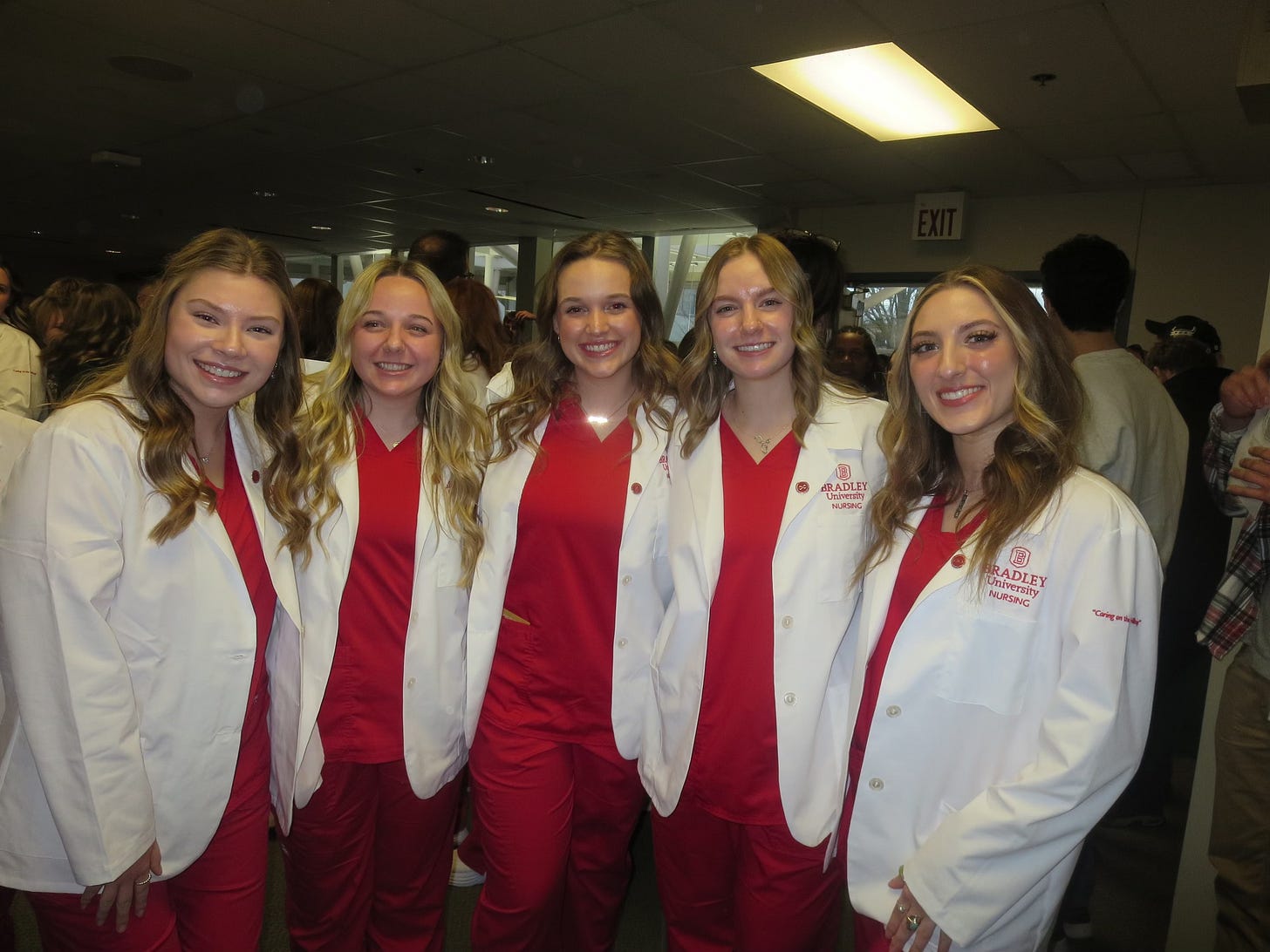Degrees to careers: Bradley University students discuss school's role in professional readiness
Exploring Bradley students’ readiness for their real-world profession, as well as insight from postgraduate student Britta Kuusik on the transition to her career.

Every college student faces a unique journey, encountering a distinct set of challenges along the way.
From classroom teachings to hands-on experiences, their reflections shed light on the dynamic relationship between academia and professional readiness.
In recent years 47% of college students are not confident in their ability to secure employment after college. While 57% of students are not confident about finding relevant work experience.
Here's a glimpse into the perspectives of current Bradley University students regarding the preparedness their majors offer as they venture into professional careers.
Why don’t more students feel prepared?
With lectures, exams, and extracurriculars, this question looms large
Bradley’s Senior Exit Survey indicated that within the past 3 years, 66.78% of students feel like Bradley University prepared them well for life after college.
Sophomore nursing student Ella Coleman says
“I think the Nursing program focuses on aspects of ensuring we have the necessary information and study habits to pass the NCLEX. As far as the actual field of nursing so far, I do not feel as ready,” Coleman said. “Clinical hours help, however, I feel more thrown into my time at the hospital instead of readiness, especially when it comes to time management which is crucial to nursing.”
More than 50% of participating nurses believed that their education did not prepare them for nursing while only 8% of participants strongly agreed. Compared to 10.9% who strongly disagreed, that the education and validation they had received had prepared them for nursing.
The hurdles in preparing for success after graduation aren't just exclusive to nursing majors. Students in kinesiology also face similar challenges when getting ready for their professional careers.
Sophomore kinesiology student Camilla Banat can relate.
“College is a very stressful phase in life. Students might not feel prepared for their future profession if they just try to get by with school and classes instead of really attaining the information and applying it in the real world,” Banat said.
While being an undergraduate student at Bradley, Banat discovered certain disparities that make it that much more challenging for undergraduate students to prepare for post-graduate success.
“There are many resources given to the graduate students, however, not as much for the undergraduate students. It could get overwhelming when navigating through the first four years, especially with the rigorous classes,” Banat said. “They can improve by being more of an assist for the undergraduate students, preparing them and informing them about their first four years and what Bradley offers for the graduate program.”
Bradley student Ella Coleman, as well as, Biological Science Research Tech Britta Kuusik share their insights.
What does Bradley do to prepare students?
Bradley offers a unique opportunity for students to initiate their journey toward professional readiness for their future careers.
The Smith Career Centers’ goal is to achieve positive career outcomes through career development, experiential education, and learning opportunities.
“Bradley offers career fairs that give students the options to get their foot in the door at different organizations for potential internships and jobs,” said Coleman.
Bradley University's co-operative education and internship initiative offers students a platform for professional growth. The Smith Career Center incorporates this through internships, education, and summer or part-time employment for students. While providing professional development for each student’s future career.
Banat agrees that the Smith Career Center provides resources that help in the preparation for professional readiness, while also providing additional insight.
“Bradley offers sample programs for certain majors that can help students get an idea of what classes they will be taking and need to prepare for,” said Banat. “They also assign each student an advisor, which is helpful.”
Are other universities doing the same? This is a question that lingers on for many students here at Bradley. My sister Britta Kuusik, a Staffordshire University alumna, now holds professional positions at Northwestern and Lurie Children's Hospital of Chicago following the completion of her undergraduate studies. Gives insight into how important undergraduate preparation is for a future career.

“My university did offer career development resources and in fact, it was a requirement to attend a certain number of sessions to obtain my degree,” Kuusik said. “The sessions were very helpful and it was comforting to know I had a group of people I could reach out to at a moment’s notice if I had any questions or concerns.”
During her undergraduate studies, Kuusik undertook essential coursework required for her degree, alongside mandatory scientific research. One notable project she tackled was her final research project, which delved into 'assessing the effects of mitochondrial stress on the mitochondrial pathway of apoptosis'.
“My classes made me feel moderately prepared for the current job I am in now. Learning the information was very helpful but actually having to apply it was a whole different experience,” Kuusik said.
The courses weren’t the only thing that helped Kuusik in her path toward professional readiness. She emphasizes the importance of her extracurriculars, as well.
“The extracurricular activities I participated in helped me develop many professional skills such as communication, organization, and working in a team, which are such important skills needed when starting your new job,” said Kuusik.

What happens after graduation?
Balancing the demands of work and personal life is a challenge faced by many individuals in today's fast-paced society.
Roughly 60% of global workers say they have an excellent work-life balance but 77% note they have experienced burnout at their current job. 83% of workers say their personal relationships are negatively impacted by work burnout.
Additionally, 57% of employees consider a poor work-life balance a deal-breaker when considering a job.
Britta Kuusik offers her viewpoint on the significance of achieving a healthy work-life balance.
“Managing work and my personal life has been challenging at times. To better set myself up for success, I make sure to set boundaries with work- because there is always more that can be done but that is what the next workday is for,” Kuusik said. “I also prioritized participating in various hobbies that are of interest to me like playing violin in the Northwestern Medical Orchestra.”
The challenge of achieving work-life balance extends beyond post-graduate working adults, as college students have also voiced similar experiences.
70% of college students are stressed about financial matters, school, work, extracurricular activities, and social commitments. The challenges come when students try to balance these aspects of their lives.
Banat discusses both the positives and negatives she has faced while managing her work-life balance.
“I balance work-life by planning out my days every week. The week before an exam I like to set tasks in my calendar to remind me what I should be doing at that time to maximize my productivity, which has been super helpful,” said Banat.






